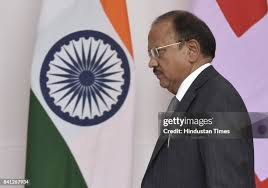Understanding the Role of NSA Ajit Doval in India’s Security

Introduction
Ajit Doval, serving as India’s National Security Advisor (NSA), has carved a niche in shaping the nation’s security paradigm. With rising geopolitical tensions and internal security challenges, Doval’s role has become increasingly critical. His strategies and policies significantly influence India’s approach to national defense, counter-terrorism, and diplomatic relations, making his position vital in contemporary Indian politics.
Background and Career
Ajit Doval, a retired Indian Police Service officer of the 1968 batch, was appointed NSA in May 2014. His extensive experience includes intelligence operations and serving as the head of the Intelligence Bureau from 2004 to 2005. Doval’s expertise in counter-terrorism and strategic affairs has provided the Indian government with crucial insights into handling various crises, both domestic and international.
Key Policies and Initiatives
Under Doval’s leadership, India has adopted a proactive defense strategy, leading to significant changes in its approach towards neighboring nations. Notably, he was instrumental in the surgical strikes conducted against terrorist launch pads in Pakistan-administered Kashmir after the URI attack in 2016. This action marked a shift towards a more assertive military strategy, reflecting a change in India’s traditional stance towards cross-border terrorism.
International Relations and Security Diplomacy
NSA Doval has also played a pivotal role in strengthening India’s strategic partnerships globally. His involvement in various multilateral platforms, including the Quad Initiative with the U.S., Japan, and Australia, underscores his commitment to enhancing regional security cooperation. His initiatives have been particularly important in addressing concerns surrounding China’s growing influence in the Indo-Pacific region.
Conclusion
Ajit Doval’s tenure as NSA signifies a paradigm shift in India’s national security strategy. His influence extends beyond mere policy-making; he embodies the changing dynamics of India’s security apparatus. As challenges like cybersecurity threats and climate change-related security issues loom over the horizon, the strategies formulated under Doval’s guidance will play a crucial role in shaping India’s future. Moving forward, his adept handling of complex geopolitical situations will be fundamental in maintaining India’s position as a leader in regional security matters, ensuring the nation’s sovereignty and stability in an increasingly volatile world.









